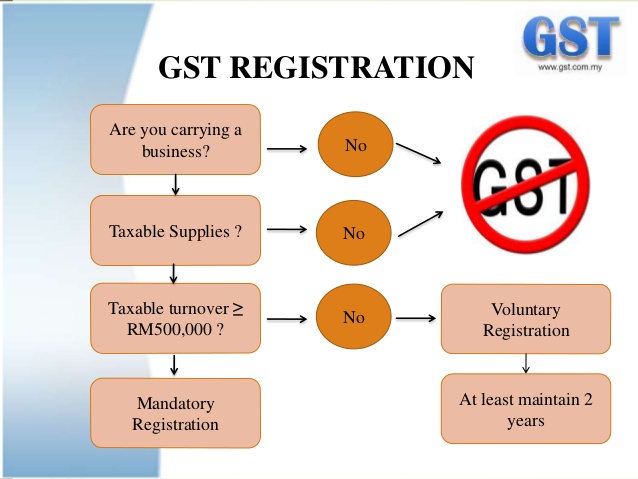Throughout: The Ultimate Roadmap to GST Registration for Businesses Seeking Financial Stability
Navigating the complexities of Item and Provider Tax (GST) registration is a crucial action for services striving for economic stability. From comprehending the fundamental principles of GST to adhering to post-registration guidelines, the process can appear discouraging initially glance. Breaking down the roadmap right into convenient actions can streamline the enrollment journey for organizations looking to enhance their financial standing. Let's discover the vital components that make up this utmost roadmap and find just how each phase adds to laying a solid structure for financial success.
Understanding GST Basics
Delving into the fundamental principles of Goods and Provider Tax (GST) is important for obtaining a comprehensive understanding of its effects on businesses and the economic climate. GST is a value-added tax obligation levied on a lot of goods and solutions for residential usage. It has actually replaced multiple indirect taxes that existed in the pre-GST era, simplifying the tax structure and improving convenience of doing service in India. Under the GST system, both items and services are exhausted at a details rate, which is established based on their category. If their yearly turnover goes beyond the threshold restriction set by the government, companies are needed to register for GST. Input Tax Obligation Debt (ITC) is a substantial attribute of GST, allowing organizations to claim debt for taxes paid on inputs, minimizing the general tax burden. Recognizing the essentials of GST is important for companies to adhere to tax laws, handle their financial resources efficiently, and add to the nation's financial growth by participating in a clear tax system.
Eligibility Requirements for Registration
As of the present laws, the threshold restriction for GST enrollment is a yearly accumulation turnover of 40 lakhs for organizations operating within a state, other than for special group states where the limitation is 20 lakhs. Additionally, specific businesses are called for to sign up for GST irrespective of their turnover, such as interstate providers, casual taxed persons, and services liable to pay tax under the reverse charge device. It is vital for businesses to extensively evaluate their turn over and transaction types to identify their GST enrollment responsibilities precisely.
Documents Needed for Registration
Having actually met the eligibility requirements for GST enrollment, companies need to currently ensure they have the requisite documents in place to wage the enrollment process effectively. The records required for GST registration typically include proof of service constitution, such as partnership action, enrollment certification, or incorporation certification for different kinds of organizations. In addition, services need to supply records developing the principal place of company, such as a rental contract or electrical energy costs. PAN card of the service, in addition to the identity and address proof of promoters/partners/directors, are necessary for confirmation functions. Savings account declarations, together with canceled cheques or a duplicate of the bank passbook, are needed to confirm the monetary information provided throughout enrollment. Additionally, companies have to have click this digital trademarks prepared for the accredited notary. Guaranteeing all these documents are arranged and easily offered will certainly speed up the GST registration procedure, enabling companies to follow tax guidelines effortlessly.
Step-by-Step Registration Process
Following, all called for records as per the checklist provided by the GST portal need to be posted. These files usually address include evidence of organization address, identity and enrollment evidence of marketers, monetary declarations, and service entity's PAN card.

Post-Registration Compliance Standards

Conclusion
Finally, companies seeking economic stability must understand the essentials of GST, fulfill eligibility standards, collect required records, adhere to the detailed registration process, and adhere to post-registration standards - Best GST registration services in Singapore. By sticking to these steps, businesses can guarantee conformity with tax view it now laws and preserve economic security in the lengthy run
Additionally, certain companies are called for to sign up for GST irrespective of their turn over, such as interstate distributors, laid-back taxed individuals, and organizations responsible to pay tax obligation under the reverse charge system.Having met the eligibility standards for GST registration, companies need to now ensure they have the requisite papers in area to proceed with the enrollment procedure effectively. The files needed for GST registration typically include proof of business constitution, such as partnership action, registration certification, or incorporation certificate for various types of services. Additionally, organizations need to provide documents establishing the major area of business, such as a rental contract or electricity costs.Commencing the GST enrollment procedure involves a collection of structured steps to guarantee a seamless and certified registration for companies.
Comments on “Locating Reputable and Reliable Best GST Registration Services in Singapore”